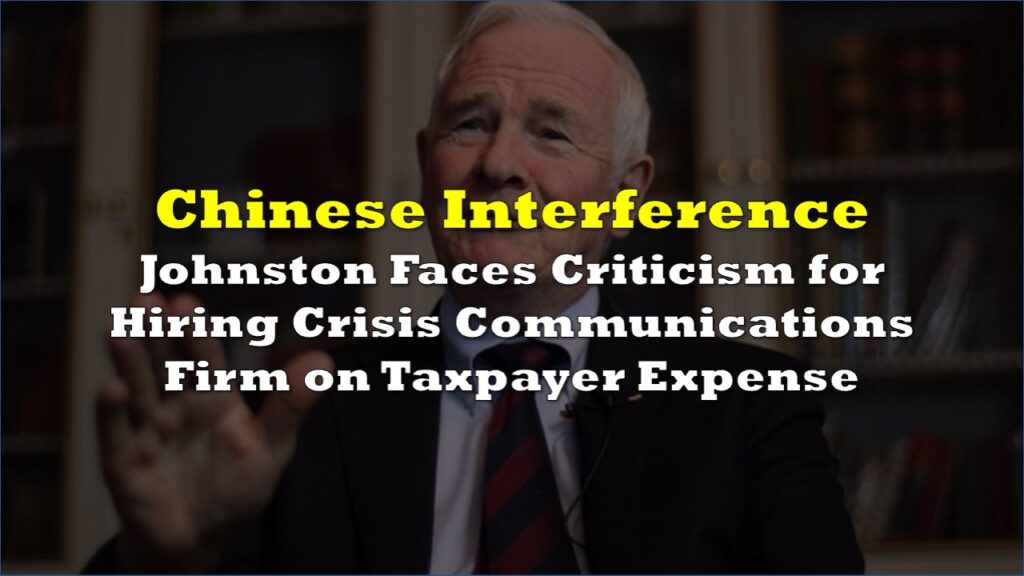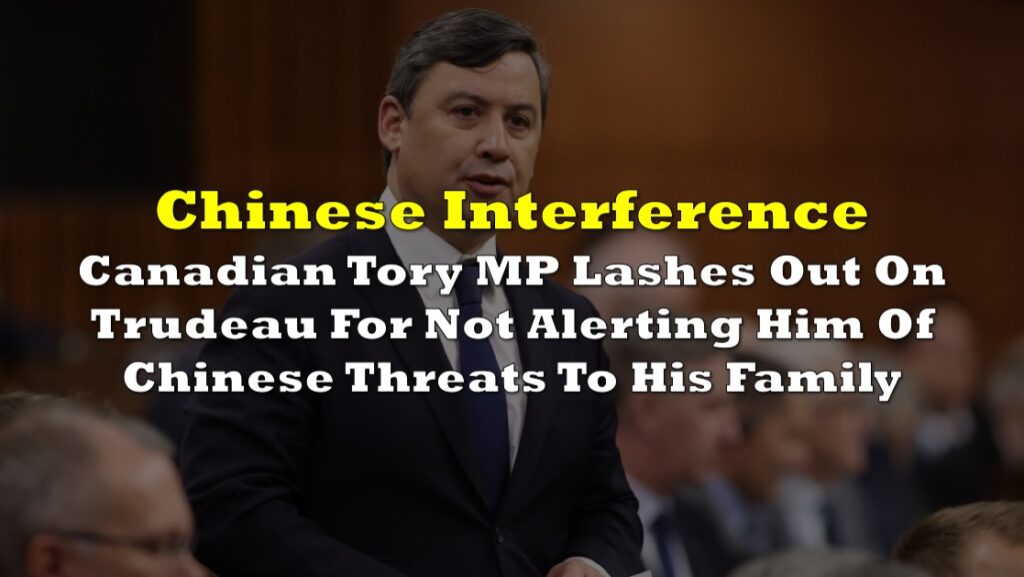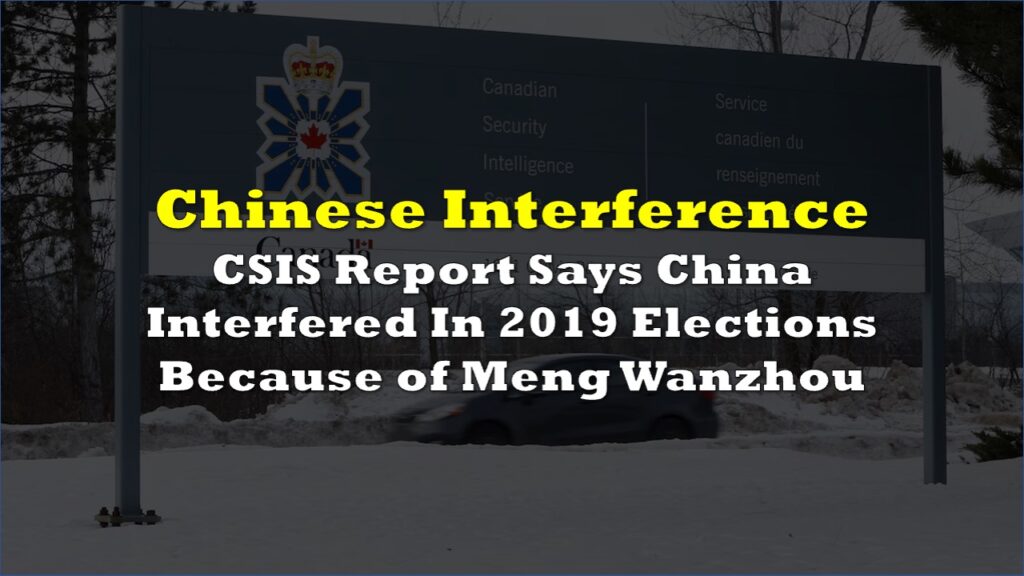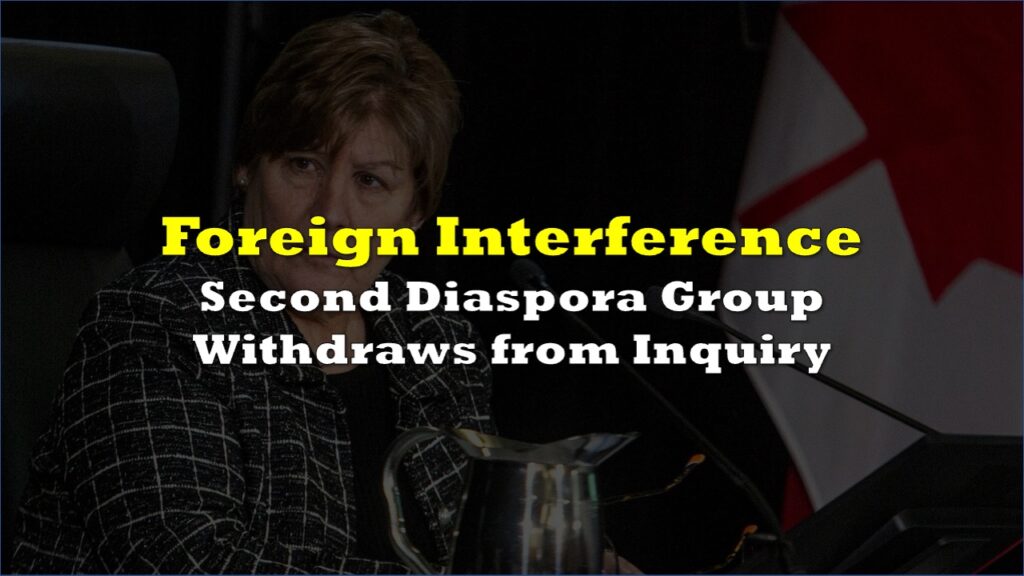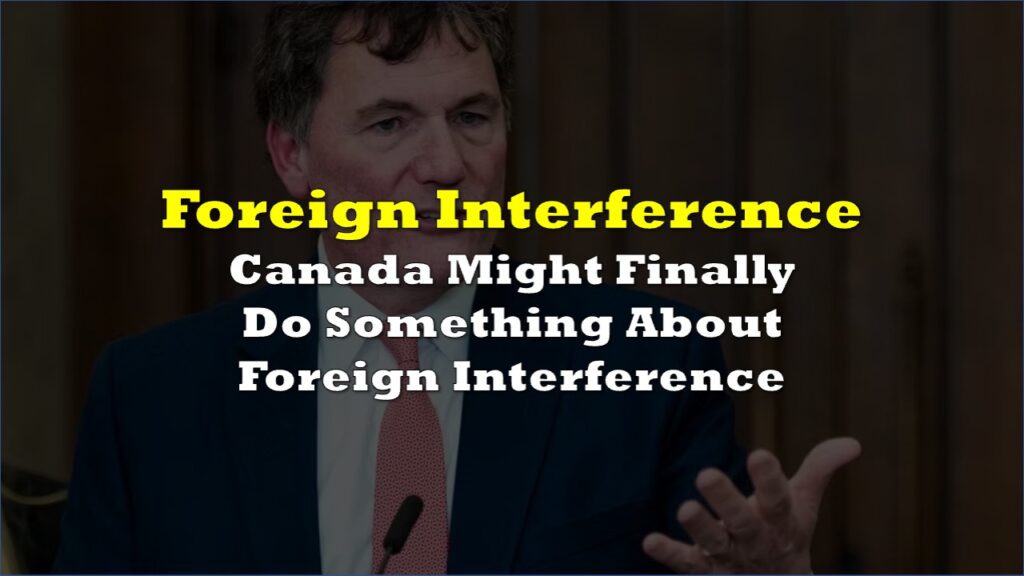An investigation under the Canada Elections Act has uncovered a sophisticated interference campaign led by Chinese consular officials targeting Conservative MP Kenny Chiu during the 2021 federal election. These findings, brought to light at the Hogue Commission, have raised serious questions about the vulnerability of Canadian elections to foreign influence, particularly in Chinese-Canadian communities.
However, despite the gravity of the evidence, federal investigators have decided not to pursue charges, citing an insufficient legal basis under current Canadian laws.
The investigation into the interference, which concluded in August 2024, focused on the role of Chinese consular officials in Vancouver who allegedly directed a disinformation campaign aimed at discrediting Kenny Chiu. The campaign, according to the Office of the Commissioner of Canada Elections (OCCE), worked through local Chinese Canadian associations and PRC-linked media outlets.
Chiu, a vocal critic of China’s human rights abuses and advocate for a foreign agent registry, became a key target of this effort.
Carmen Boucher, Executive Director of Enforcement at the OCCE, testified at the Hogue Commission on Tuesday, revealing how Chinese-language media and social platforms were used to brand Chiu as “anti-Chinese.” The disinformation campaign portrayed him as a supporter of racist policies, instilling fear within the Chinese Canadian community about the potential consequences of his re-election. The manipulation was powerful enough to create what Boucher referred to as an “anticipatory fear,” influencing the community’s voting behavior.
Despite these findings, the OCCE has found itself constrained by Canada’s current legal framework. Investigators noted that although foreign influence was clearly exercised, no specific victims of intimidation could be identified, making it challenging to meet the burden of proof required for legal action.
“We need witnesses that are willing to testify,” Boucher told the Commission, explaining that fear within the community prevented many from coming forward.
The investigation also casts light on the larger issue of PRC influence over Chinese-language media in Canada. According to the OCCE report, which spanned 112 pages, PRC-linked actors heavily influenced the narrative through Chinese media outlets in Vancouver. Articles published by platforms like Global Times and Today Commercial News echoed the anti-Chiu messaging, painting him as dangerous to the Chinese-Canadian population.
Further details revealed at the Hogue Commission suggest that community leaders in Vancouver had direct ties to Beijing’s United Front Work Department—a Chinese Communist Party organization dedicated to extending its influence abroad. It was alleged that these leaders, working for the PRC, played a significant role in shaping the election outcome by guiding their communities in voting decisions.
A particularly damning section of the report noted that community leaders involved in this disinformation effort had attended high-level meetings in China, some of which involved United Front personnel and even senior government officials.
One witness at the Commission recounted an incident after the election, where a local leader reportedly boasted, “We succeeded in defeating Kenny Chiu,” suggesting direct involvement in the PRC’s interference operation.
While the findings of the investigation are alarming, they also highlight significant structural weaknesses in Canada’s ability to address foreign election interference. Both Boucher and OCCE Commissioner Caroline Simard testified that their office is severely underfunded and lacks the resources necessary to conduct thorough investigations into such complex issues.
Currently, the OCCE operates with a budget of just $4.4 million, far short of the $10 million needed to effectively combat foreign interference, according to Simard. In addition to funding concerns, the office is hindered by outdated laws. The fines for violating the Canada Elections Act are capped at $5,000, a penalty too small to deter foreign entities with vast financial resources.
“Given the scale of foreign influence we’re dealing with, we need not only more resources but also reforms in the legal structure to have any hope of combating this kind of interference,” Simard told the Commission. She also disclosed that the OCCE has been reorganized to prioritize foreign interference cases after receiving numerous complaints following investigative media reports in late 2022.
However, even with these internal changes, the OCCE remains overwhelmed. The investigation into PRC interference in Toronto’s Don Valley North riding, which is linked to allegations from the 2019 federal election, is still ongoing, with no clear timeline for its conclusion. The lack of progress in such cases only further frustrates critics who argue that the federal government is not doing enough to protect the integrity of Canadian elections.
The revelations surrounding Chiu’s case are not an isolated incident. In recent years, there has been growing evidence that the Chinese government has sought to interfere in democratic processes in various countries, including Canada. Beijing’s influence operations are often carried out through the United Front Work Department, a shadowy agency that builds relationships with overseas Chinese communities to exert control and promote the interests of the Chinese Communist Party.
Chiu’s support for Hong Kong’s pro-democracy movement and Uyghur human rights—two issues that are highly sensitive for Beijing—made him a prime target for PRC-linked actors. His introduction of Bill C-282, which sought to establish a foreign agent registry, further antagonized Beijing, as such legislation would have forced PRC operatives in Canada to register and declare their activities.
While the investigation may not have led to criminal charges, it has undeniably shed light on the growing problem of foreign interference in Canadian politics. The inability of the OCCE to prosecute those responsible has only fueled demands for legislative reforms and increased protections against foreign influence in future elections.
Information for this briefing was found via The Bureau and the sources mentioned. The author has no securities or affiliations related to this organization. Not a recommendation to buy or sell. Always do additional research and consult a professional before purchasing a security. The author holds no licenses.





